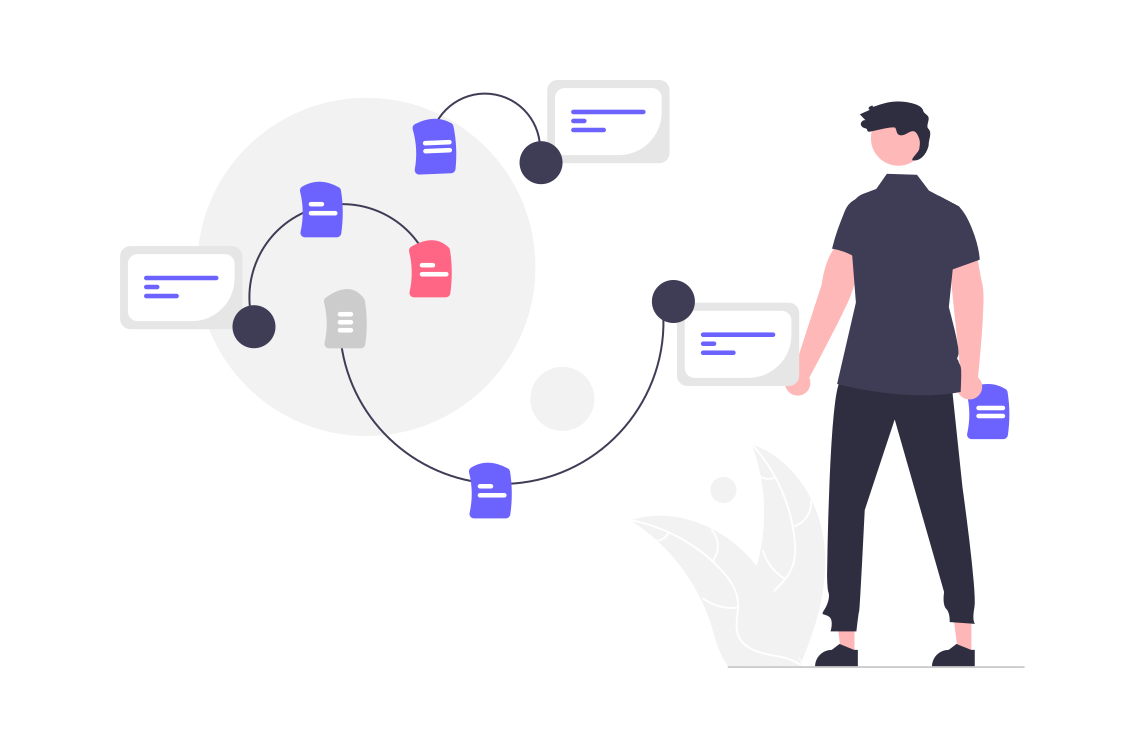- Marketing Automation Trends 2023: A Rundown
- Local Marketing Automation
- Social Media E-Commerce Automation
- Automatic Lead Routing and Scheduling
- Omnichannel Marketing
- Hyper-Personalized Content
- More Reliance on Artificial Intelligence
- Marketing Automation Trends 2023: The Year of Machine Learning and AI
Get news, updates, and insights delivered straight to your inbox.
6 Marketing Automation Trends that You Need to Know in 2023

6 Marketing Automation Trends that You Need to Know in 2023
Organizations can’t afford to rely on manual marketing processes in today’s highly competitive environment. Hundreds of automation tools (many powered by artificial intelligence) now assist marketers with email management, personalized recommendations, social media marketing, and campaign analytics.
If you have a small marketing department or simply want to optimize the ROI of your advertising efforts, investing in automation tools is a no-brainer. You’ll find you spend far less time on repetitive work, allowing you to focus your efforts on developing creative campaigns that attract customers.
Here are a few marketing automation trends to be aware of.
Marketing Automation Trends 2023: A Rundown
Whether you’re a CMO or a marketing manager, understanding the most effective tools is the first step in identifying where you can optimize your efforts.
Local Marketing Automation
Local marketing is advertising efforts meant for a specific audience in a particular location. For instance, a law practice might advertise its personal injury legal services to residents in its city and surrounding communities.
However, companies with multiple branches across the nation (or even worldwide) also seek to amplify their advertising efforts through local channels, especially if they have brick-and-mortar storefronts that they rely on for sales.
In the past, localizing marketing efforts for a business with multiple storefronts was time-intensive for marketing professionals. Poorly aligned efforts could also result in an organization losing its cohesive brand persona. Today, it’s much easier to achieve the same results (or even greater ones) through automation and artificial intelligence.
With automation tools from MarcomCentral, you can store sales materials used for local marketing in a central location. Your employees can retrieve and use them for local marketing efforts, saving time and ensuring they convey the same brand message while catering to local perspectives or demographics.
Social Media E-Commerce Automation
Social media platforms regularly introduce new features that benefit e-commerce stores. Some of the most notable offerings include better product advertising powered by AI-driven insights and reach through sponsored content and links to products in posts.
One particular benefit is that companies who want to expand their following with influencer partnerships will find tools within platforms like TikTok and Instagram that allow them to identify influencers who meet specific criteria. For instance, they can sort through influencers based on audience demographics and size, allowing them to pinpoint the perfect influencer for their brand.
Automatic Lead Routing and Scheduling
While lead generation tools are helpful, you can augment and increase their benefits by connecting them with your CRM system or other software that has automation or AI capabilities.
With the right programs, you can automate the lead qualification process, such as segmenting your leads by their location or other demographics. Some tools can even assign your leads a score based on their behaviors and engagement.
This way, once you obtain a new lead via a website pop-up or other source, you can set up automation activities to eventually turn them into a customer. For example, you can send them targeted emails based on their interactions with your website or social media accounts.
Omnichannel Marketing
Omnichannel marketing is a relatively new strategy that involves ongoing customer engagement through multiple channels, including email, social media, text messaging, the internet, and in-person contacts.
This strategy aims to stay with the client through all stages of the customer journey. Each channel integrates with the others, providing feedback about the customer as they explore different merchandise, make purchases, and otherwise interact with a brand.
Omnichannel marketing would be extraordinarily difficult without tools that connect with one another.
For instance, consider a buyer who starts a purchase on a website, then abandons the cart. An omnichannel automation tool can send an email reminder about the abandoned purchase, then retarget the customer with an ad through social media for the same product.
If the client has signed up for SMS notifications, the company might send an automated message with a unique discount code to encourage them to complete their purchase.
You can improve the effectiveness of your omnichannel marketing strategy by embracing tools that incorporate AI to enhance your messaging and reduce time spent on redundant tasks.
Hyper-Personalized Content
Another of the top marketing automation trends is personalization. Machine learning, AI, and data aggregation advancements allow companies to track customers, learning more about their hobbies, interests, and buying behaviors.
These tools enable marketers to target their audience more precisely, reducing the risk of wasted ad spend on people unlikely to convert.
Multiple personalization tools are available today, many for email and social media marketing. For example, organizations can use Facebook ads to carefully target their audience using parameters such as income, marital status, life events, and hobbies.
Similarly, companies can use email marketing tools with AI technology that personalize each subscriber’s newsletter to contain articles more likely to attract their attention based on prior user behavior.
More Reliance on Artificial Intelligence
As tools like ChatGPT become more widely available, artificial intelligence is likely to become a formidable force for content creation, topic development, and chatbots.
Previous content tools were primarily limited to topic research and short-form written content, such as product descriptions and social media posts. While many marketers have relied on these tools for creative inspiration, ChatGPT is capable of producing longer-form content.
Companies that rely on chatbots to interface with their website visitors will find that new AI technology greatly improves the chatbot experience. Tools like ChatGPT 3.5 and Google Bard enhance the technology underlying older chatbots, making conversations with the bots more natural and productive.
Generating content from a tool like ChatGPT is simple, but it’s not always accurate. Much of the data from ChatGPT comes from the internet, and it may be several years out-of-date.
Companies should be wary of publishing AI-generated content without thoroughly fact-checking it. Incorrect information could damage the brand’s reputation, among other issues like plagiarism and copyright infringement.
As the year unfolds, this AI tool’s potential and its impact on marketing will become clearer.
Marketing Automation Trends 2023: The Year of Machine Learning and AI
Research shows that marketing professionals rely on data to develop high-performing campaigns for specific targeted audiences that traditional strategies, like television commercials and print ads, can’t deliver. Improvements in automation, machine learning, and artificial intelligence will impact the industry further in the coming year.
Learn how MarcomCentral’s omnichannel platform can improve your company’s marketing processes. Schedule a demo with MarcomCentral today.
You might also like


